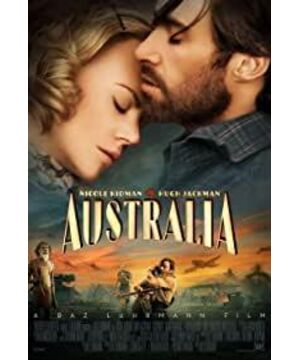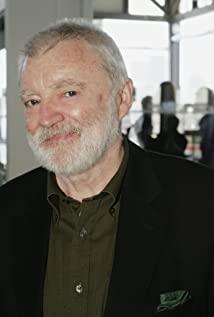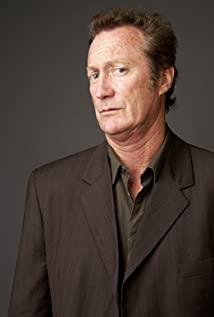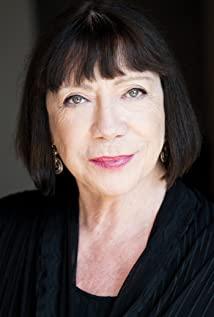/
Jiuxianri when he wrote this article, he has been hesitating in his heart whether to use the movie's introduction title. Not to mention whether such a "free translation" is appropriate or not, if you don't know much about the film before, and you just see the word "Australia", the original name of the film, which represents the meaning of the country, you basically won't have a rough idea of the plot. It can be explored that this is a film about the "Australian" indigenous culture. "Love in troubled times" almost clarifies the theme. The generalization of this strong definition has more or less deprived the viewers of their right to spontaneously understand, and it is inevitable that there will be suspicions of being led by the nose.
Compared with the traditional and conservative Chinese people, the thinking mode of foreigners is simpler and more direct. It is said that this film is officially defined as a scenic tourism film in Australia. We don't care whether the backbone of the film is developed around this theme, and we don't discuss whether the cultural market with China's national conditions can accept the direct use of "country" to name a work. Transplanting to domestic filmmakers with commercial purposes and box office revenue as the leading ideas will also make them scratch their heads. No one is sure how much influence the things used to promote themselves can have on outsiders. From this perspective, whether it is the adaptive tampering of the film list or the racking of brains to attract attention with more appropriate packaging , is also understandable, probably has nothing to do with narrow-mindedness.
But there is one thing that cannot be avoided. According to the Chinese concept, the title is very important, and it itself represents the essence of the content. Changing the name should be regarded as an understanding. Can the localized interpretation really meet the director's original intention? If it is appropriate, it should deprive the audience of the fun of actively seeking answers to some extent. If not, it is of course a great misleading of the audience's irresponsibility. According to our Chinese thinking mode, if we use the literal translation of "Australia", it is equivalent to subconsciously accepting a movie called "China". A movie named "China" also metaphysically believes that "Australia" must not be able to carry the heavy name of "Australia". Is this a distrust of others or a lack of confidence in oneself?
After its release, domestic film critics criticized the film in many ways. It is not clear whether it is nitpicking. There is a very strange way of thinking. There are always many people who unnaturally compare it with "Gone with the Wind". Looking back, it's hard to tell whether the movie itself is so similar to "Gone with the Wind", or whether the propagandists are wishing to induce the audience to use the "classic" thinking of "Gone with the Wind" to feel the film. Perhaps this is also somewhat imposed on the film. Gives the movie an unfair coat. In view of this, I reasonably lowered my expectations to the lowest point before watching the movie. With this peaceful attitude, I did not feel bored during the nearly three-hour viewing process, but I really felt the movie. The sophistication and beauty of her, this heartfelt praise and appreciation was also unexpected.
To be honest, the movie does have some of the style of "Gone with the Wind", love, war, beauty, about the pursuit and emotional growth of each character, the grand and spectacular scenes, the natural scenery with excellent sensational effect, and even the same as last year. The critically acclaimed "Redemption" has similarities. The various elements contained in the film are obviously showing favor to Oscar, but why is such an excellent film with touching story, twists and turns, excellent visual effects and humanistic concepts not well received? The film is too long, there are too many clues, the director's appetite is too great to fully implement various concepts, and they cannot reach the extreme. In fact, these criticisms are precisely caused by the director's too strong ambition and sufficient sincerity. "In the title of the film, the director has too many indescribable feelings and an extremely strong "fullness" desire for his country and that era, and he wants to do his best to include the whole "Australia" in the time of one film. It's not so much that the movie is too trivial and long, it's more that there is simply not enough time to support the whole of Australia.
Directors all over the world will shoot love, but Luhrman, the director of this film, is one of the few who can truly respect and cherish love and only describe love itself directly and devoutly. From the "Red Curtain Trilogy", we can really appreciate it. The director's profound skill in expounding love layer by layer. In "Australia's Troubled World", this simple love space has changed. "Beautiful" is no longer a pampered urban woman, but a woman who dares to take responsibility and face challenges. female. The most important thing is that this is a movie about "Australia", so the love line has become a sub-line. The main clue of the movie is actually the revelation of the ugly past of the "stolen generation" in Australian history. This is the Aboriginal culture that is unique to Australia. The film begins with a child's vision and narration. In fact, it has been clarified that the first protagonist of the film is the indigenous child "Nara". The child's heart is originally immature and immature, and he uses his perspective to drive the development of the plot. , also shows the director's exploratory mentality in creating this film. As for love and troubled times, that is not the core of the film, and it cannot represent "Australia". The director transferred his feelings to the indigenous children in the film, and used his eyes to lead the world to see the "Australia" of that era in his heart. ". Because of the Aboriginal, so "Autralia"!
I suddenly wondered if those critics of the film were a little too harsh, so harsh that they had an innate rejection of foreign cultures, precisely because they didn't understand or were not interested in understanding them at all. Just from the quality of the film, the fertile soil where the scenery is full of colors will naturally breed a photographic vision with an extraordinary feeling for visual effects, so the picture of the film is worthy of "beauty", while in Luhrmann's film There has never been a shortage of beautiful music. The sound effects of this film are also worthy of praise. The most worthy of recognition is the wonderful interpretation of the hero and heroine. The long-lost stubborn, real, lively and textured Nicole, the sexiest man "Wolverine" is in the film. Tears that broke the hearts of women all over the world. Now it seems that even if the movie does not reach the height of the classics, it is at least an excellent and well-made work, and it can never be a "bad movie" that is shoddy and shoddy. Director Shan's courage to challenge and break through is already worthy of admiration. Even if outsiders can't accept it, I believe that the film has moved the "Australian" audience with its title.
Jiuxianri original film review, reprinting is prohibited without permission, contact QQ: 6256450
View more about Australia reviews











